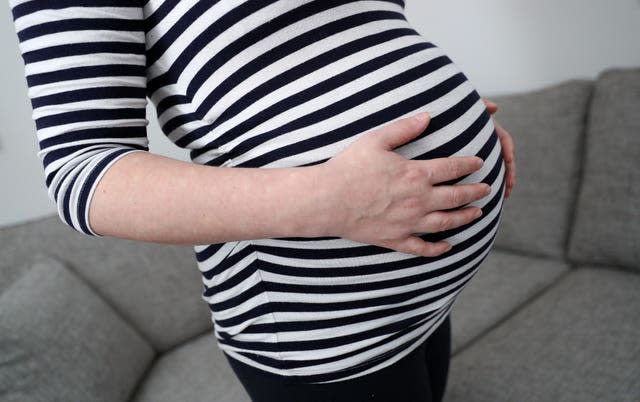Hospital recruitment drive undermined due to ‘racism by colleagues’ – report
A hospital trust’s international recruitment drive to try to increase the number of midwives was “undermined” as staff faced racism from their own colleagues, health inspectors have said.
International members of staff, brought from different countries to work in hospitals in Bedfordshire, felt that discrimination against ethnic minorities had become “normalised”, the Care Quality Commission (CQC) said.
They also had a “lack of support from leaders” and staff felt unable to report instances of racism, the CQC added.
The CQC said maternity services at both Luton and Dunstable Hospital and Bedford Hospital – run by Bedfordshire Hospitals NHS Foundation Trust – have declined from “requires improvement” to “inadequate”.
Whistleblowers contacted the CQC to raise concerns about the safety, culture and management of the service provided.
The CQC issued the trust with a warning notice in December after its inspection in November, calling for it to make immediate improvements to safe staffing levels in maternity and it has ordered the hospitals to support staff by “challenging unacceptable behaviours and language”.
Stuart Dunn, CQC deputy director of operations in the East of England, said: “At our inspection, we were concerned to find low staffing for midwives was still a significant risk to the safety of women, people using these services, and their babies despite us telling the trust they needed to address this previously.
“The trust had taken steps to address the issue by recruiting midwives internationally, but at this inspection we found this programme was being undermined by racism against staff, by their own colleagues, and a lack of support from leaders.
“Some international midwives told us they often felt excluded, and that it was normalised for colleagues from ethnic minorities to experience discrimination from colleagues.
“In the trust’s 2022 staff survey, a third of all midwives reported experiencing at least one incident of bullying or harassment from colleagues.
“Leaders hadn’t always taken meaningful action to address these issues, but have started to put actions in place since we raised this with them.”
He added: “While staff were working very hard, low staffing issues meant people could not always access services when they needed it.
“Capacity issues were particularly severe at Luton and Dunstable Hospital, which had to redirect people to other hospitals on the first day of our inspection.
“We also saw women and people using the service at Luton and Dunstable Hospital waiting a long time for call bells to be answered.
“Midwives in the community service told us day-to-day staffing was often difficult as they were pulled in to cover the labour wards.
“This meant they weren’t available for their planned work in the community the following day, impacting on people’s care.
“We issued the trust with a warning notice in December to focus their attention on making improvements to maternity services.
“Since the inspection they’ve produced an action plan to address our concerns.
“We’ll be monitoring these services closely, including through further inspections, to make sure people receive safe care while these improvements are implemented.”
Last week, midwifery leaders from the Royal College of Midwives (RCM) called on the incoming government to “eradicate racism in maternity services once and for all”.

The RCM highlighted how a recent NHS staff survey found that almost half of midwives who had experienced discrimination said it was because of their ethnic background.
At both Luton and Dunstable Hospital and Bedford Hospital, inspectors found that the maternity units did not always have enough staff to care for women and keep them safe.
The CQC said that on the first day of its inspection, Luton and Dunstable was at capacity and staffing pressures had contributed towards the trust decision to “go on divert”.
At the time, the hospital was eight midwives and four maternity support workers short during the day shift and eight midwives and one maternity care assistant short on the night shift.
The rating of the trust overall remains unchanged as “good”, the CQC said.
David Carter, chief executive of Bedfordshire Hospitals NHS Foundation Trust, said: “As a trust committed to delivering excellent care, the CQC feedback was disappointing for us to hear but we are focusing our effort on ensuring that our maternity services consistently meet the standards of care we aspire to give.
“It was reassuring that the CQC confirmed that on both sites staff treated women with compassion and kindness, provided a service which was inclusive and took account of women’s individual needs and preferences and achieved good outcomes. I want to thank our staff for their hard work and commitment during what has been a period of significant challenges.
“We are taking immediate action in the areas identified by the CQC, many of which have already been addressed since the inspection visit in November 2023.
“Like many other trusts across the country staff shortages within maternity continue to be a challenge for us, but we are pleased to report that our vacancy rate for registered midwives has reduced to 6.6% on the L&D site, with a fully staffed department at Bedford.
“We were disappointed to hear that our international midwives reported issues of discrimination. Any act of discrimination or racism is unacceptable and the trust is committed to ensuring any issues are addressed.
“The trust has a tailored induction programme for international midwives to help them adjust to a new country and healthcare system and we were pleased to hear in the report that internationally trained staff were complimentary of the support they received from the trust.
“We have also developed a fully tailored culture and development programme for our maternity staff to foster a more inclusive and respectful working environment.
“To support this programme, we are also currently running staff engagement events that will be attended by over 4,500 colleagues, focusing on increasing awareness and understanding of different cultural backgrounds and preventing discriminatory behaviours.”


